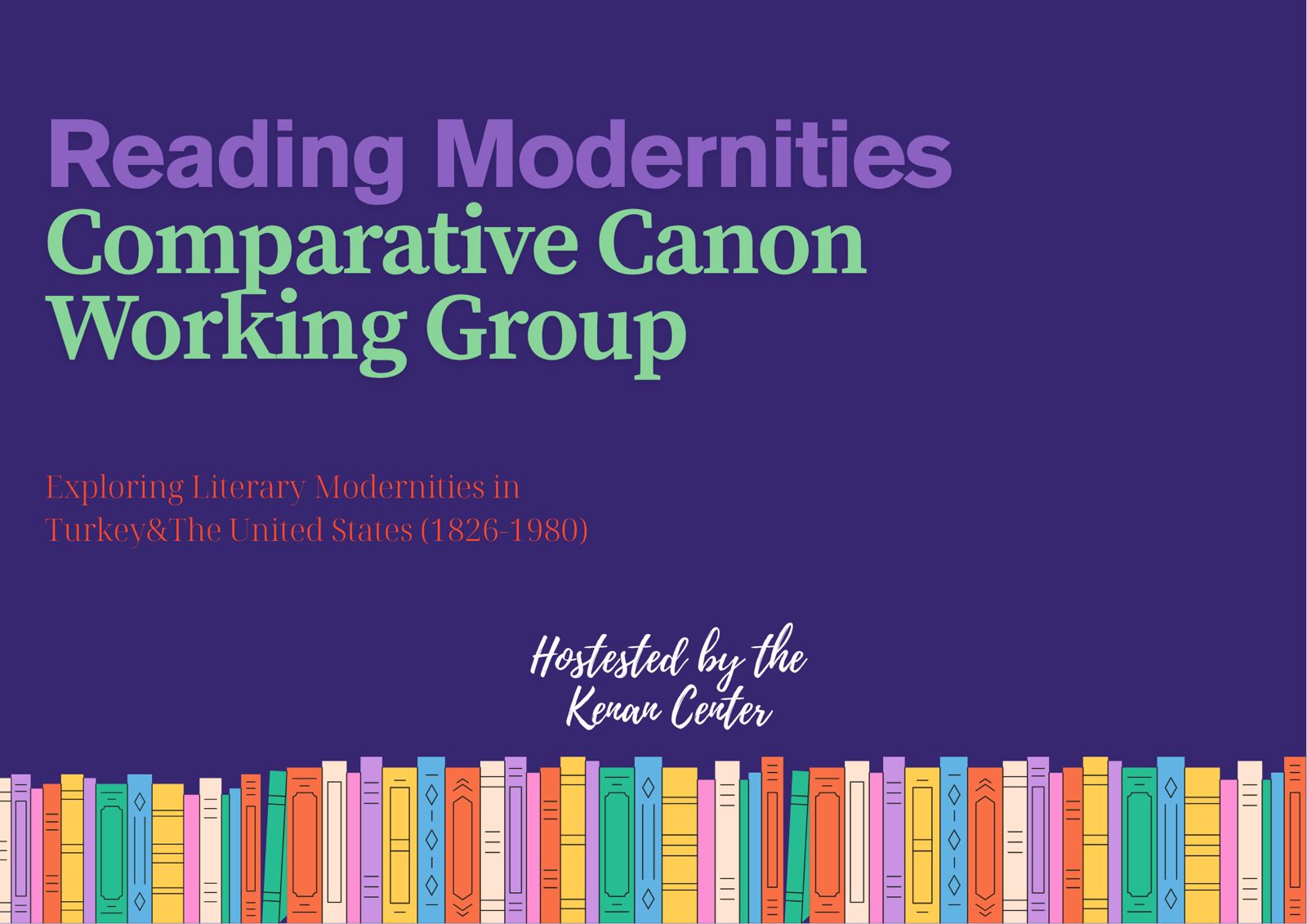Cultural Canon Working
Project Overview
The Comparative Cultural Canon Working Group is a year-long research and reading collective convened as part of the Kenan Center's long-term initiative to build a comparative corpus of Turkish and American texts from 1826 to 1980. Designed for scholars, translators, graduate students, and cultural practitioners, the working group will explore the intersecting literary, philosophical, and political formations that shaped modernity in both traditions.
This group provides a structured and collaborative space for participants to engage with lesser-known texts, reflect on translation practices, and contribute to the making of a bilingual canon that foregrounds reform, gender, emancipation, spirituality, and dissent across time and geography.
Objectives
- To foster sustained scholarly dialogue around the cultural and intellectual production of modern Turkey and the United States
- To generate annotated bibliographies and draft translations for future publication
- To co-develop public-facing programming, including panels, podcasts, and reading salons
- To train a new generation of scholar-translators equipped to work across literary and historical boundaries
Structure and Activities
The group will meet online once a month from October 2025 to June 2026. Activities will include:
- Thematic reading discussions (texts provided in English or bilingual format)
- Translation workshops (focused on style, ethics, and terminology)
- Archival and contextual research roundtables
- Public programming co-curated by group members
Each participant will be expected to contribute a short translation (5-10 pages), a research note, or a public-facing piece (essay, podcast episode, or discussion guide) as a final output.
Comparative Reading Table
Turkey and USA (1826-Present)
| Period | Turkey - Key Authors & Works | USA - Key Authors & Works | Shared Themes |
|---|---|---|---|
| Tanzimat Era (1826-1876) | Namık Kemal (İntibah, Vatan Yahut Silistre), Ahmet Mithat (Müşâhedât), Young Ottoman writings | Emerson, Thoreau, Harriet Beecher Stowe (Uncle Tom's Cabin), Frederick Douglass (Narrative) | Nation-building, emancipation, identity, reform |
| Late Ottoman (1876-1923) | Fatma Aliye (Muhadarat), Halide Edib (Handan), Şehbenderzâde Ahmed Hilmi (Amak-ı Hayal), Tevfik Fikret | Mark Twain (Adventures of Huckleberry Finn), Edith Wharton (The Age of Innocence), Upton Sinclair (The Jungle) | Modernity, industrialization, gender, critique of norms |
| Early Republican (1923-1950) | Ziya Gökalp (Türkçülüğün Esasları), Yakup Kadri Karaosmanoğlu (Yaban), Peyami Safa, Ahmet Hamdi Tanpınar (Huzur) | F. Scott Fitzgerald (The Great Gatsby), Ernest Hemingway (A Farewell to Arms), Langston Hughes | Secularism, nationalism, cultural identity, literary form |
| Post-Republican (1950-1980) | Samiha Ayverdi (İstanbul Geceleri), Safiye Erol (Ciğerdelen), Nezihe Araz (Bozkırda Bir Atlı), Sofi Huri | Jack Kerouac (On the Road), Allen Ginsberg (Howl), Betty Friedan (The Feminine Mystique), MLK Jr. | Inner ethics, spirituality, civil rights, feminism |
| Contemporary Period (1980-Present) | Latife Tekin (Sevgili Arsız Ölüm), Elif Şafak (Baba ve Piç), Orhan Pamuk (Benim Adım Kırmızı) | Toni Morrison (Beloved), Don DeLillo (White Noise), Audre Lorde, Gloria Anzaldúa | Postmodernism, memory, diaspora, global narratives |

